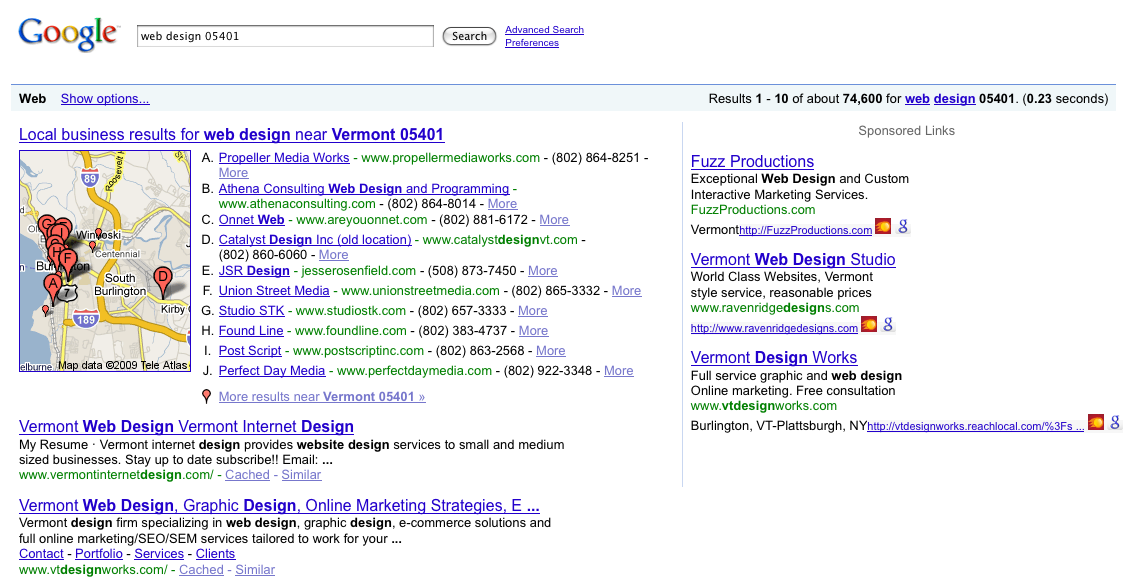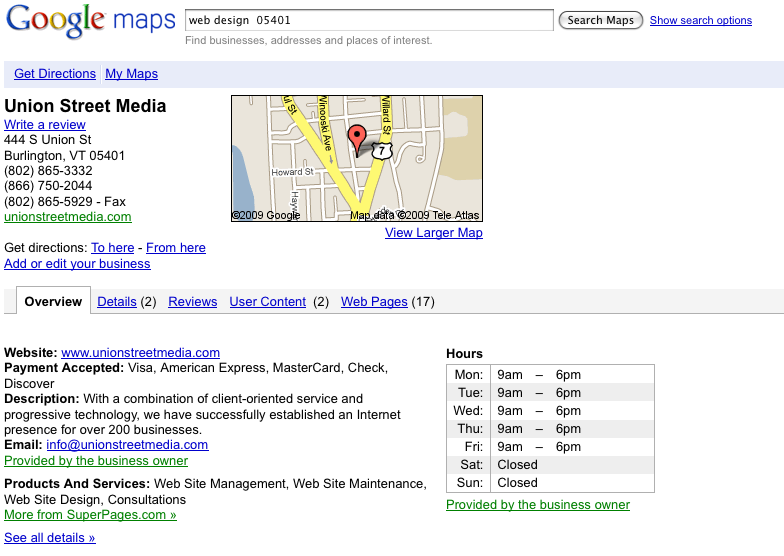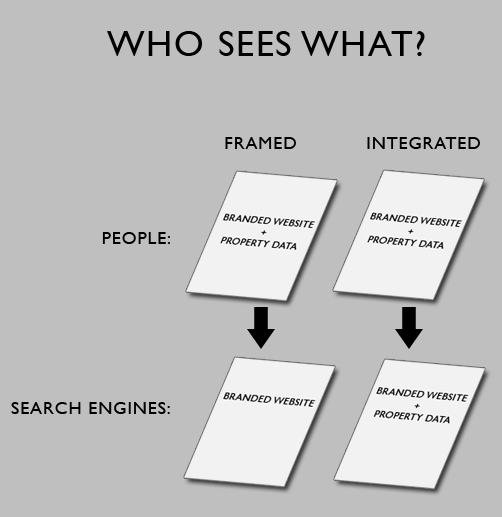We all know the old marketing and advertising model: take out an ad in the paper or buy some billboard space and sit back and see what happens. There are many problems and inefficiencies in this model. First of all, aside from a loose geographic area or subscription audience, there is no way to target the specific groups of people you are interested in reaching. Second, there is no way to gauge the number of people that the advertisements actually reach and, more importantly, effect. Third, once the ad run is finished or the billboard comes down, the only residual benefit is some passing brand recognition.

Internet marketing – including organic search engine placement, Pay Per Click advertising and online social media – has decentralized how businesses reach their target audience. With this decentralization has come many advantages. The advertiser can more quickly respond to market shift and trends while focusing marketing dollars on a targeted demographic. However, with this decentralized model lots of people are trying to manage their ad campaigns themselves rather than hire a marketing professional, which comes with many pitfalls. Advertising agencies had focus groups and opinion polls that they used in their process. With the new model people often bypass this step and base campaigns on what they perceive consumer interest to be in their market. By basing their efforts on their perceptions, they are missing out on many of the advantages that online marketing offers.
Why base your online marketing on a guess when you can base it on fact? Thanks to the analytic tools available on the Internet, you can convene a focus group of your own that is made up of your entire market area. At its best, online marketing is driven by keyword data, while everything else (design, functionality and products and services) takes second seat. You can have the most attractive site and the most cutting edge product on the market, but if no one comes to your website then you garner no benefit. This is why keyword data analysis has to take first priority in your online marketing budget.
To frame our investigation of the fundamentals of keyword analysis, lets take and example of a business — we will call it ACME. ACME is trying to decide what keywords to focus on for their new website. The first thing that they have to do in their decision making process is define their online market area (OMA). OMA is made up of every conceivable combination of keywords that a potential customer could type in when looking for ACME’s products or services. Humans are a generally imprecise species and thus there can be literally thousands of keyword combinations, including misspellings, that could relate to ACME’s goods and or services. Having defined this through keyword research, ACME chooses two possible keyword options, X & Y.
While ACME wants to lead with X or Y they also want to take as much advantage of their OMA as possible. However it would be inefficient, expensive and likely impossible to try and optimize ACME’s site for their entire OMA. Because ACME can’t effectively optimize its site for thousands of different keywords, it is necessary for them to focus efforts within some section of the OMA. This is the point where ACME might commit the cardinal sin of online marketing: they may look at their OMA and choose which keyword they want to focus on based on their perceptions of what will bring them the most traffic. To avoid this, ACME needs overlay two more sets of data onto their OMA.
The First set of data is search engine traffic. Getting hard data on the frequency that certain keywords are used helps to focus their efforts on more productive terms within their OMA. This is another point at which people make a classic online marketing blunder. For example judging by the keyword traffic data displayed in figure 1 Acme’s obvious choice would be X.
|
Term
|
Keyword Traffic/mo
|
|
X
|
10,000
|
|
Y
|
7,000
|
Fig 1
While selecting keywords from this set of data will be more productive than keywords blindly chosen from the entire OMA, there is still one critical piece of information in ACME’s decision making process that is missing, namely keyword competition.
Keyword competition is defined by the number of websites and pages competing for organic placement for a given search term. ACME makes the right decision and looks at keyword traffic and keyword competition data on the two terms displayed in figure 2.
|
Term
|
Keyword Traffic/mo
|
Keyword Competition
|
|
X
|
10,000
|
2,000,000
|
|
Y
|
7,000
|
700,000
|
Fig. 2
With this new source of data, ACME sees that while X has 30% more traffic than Y it has more than twice the amount of competition. To quantify this data we can generate something I have developed called the Keyword Benefit Index, using this simple formula:
Keyword Traffic / Keyword Competition = Keyword Benefit Index (KBI)
In this case, the KBI for term X is .005 compared to .01 for term Y. KBI is a simple tool to evaluate potential keyword benefit for a unit of investment. The actual KBI value is not in a high number — but in providing a scale upon which all the terms can be measured. Once a KBI has been assigned for any given term, the list can be sorted by that KBI value, identifying which keywords offer the most opportunity. When utilized in this case by ACME, they discover that keyword Y is a better keyword choice than keyword X.
This is a simplified version of the data analysis and decision making process necessary for selecting primary keywords for a website. If a company such as ACME is going to take full advantage of this new decentralized advertising model, then they owe it to themselves to utilize the tools – and most importantly the data – that is available to them in today’s online marketplace. To do so they need to develop in-house expertise or hire firms with a strong track record in Search Engine Optimization. Anything short of that is an improper use of their marketing budget.













